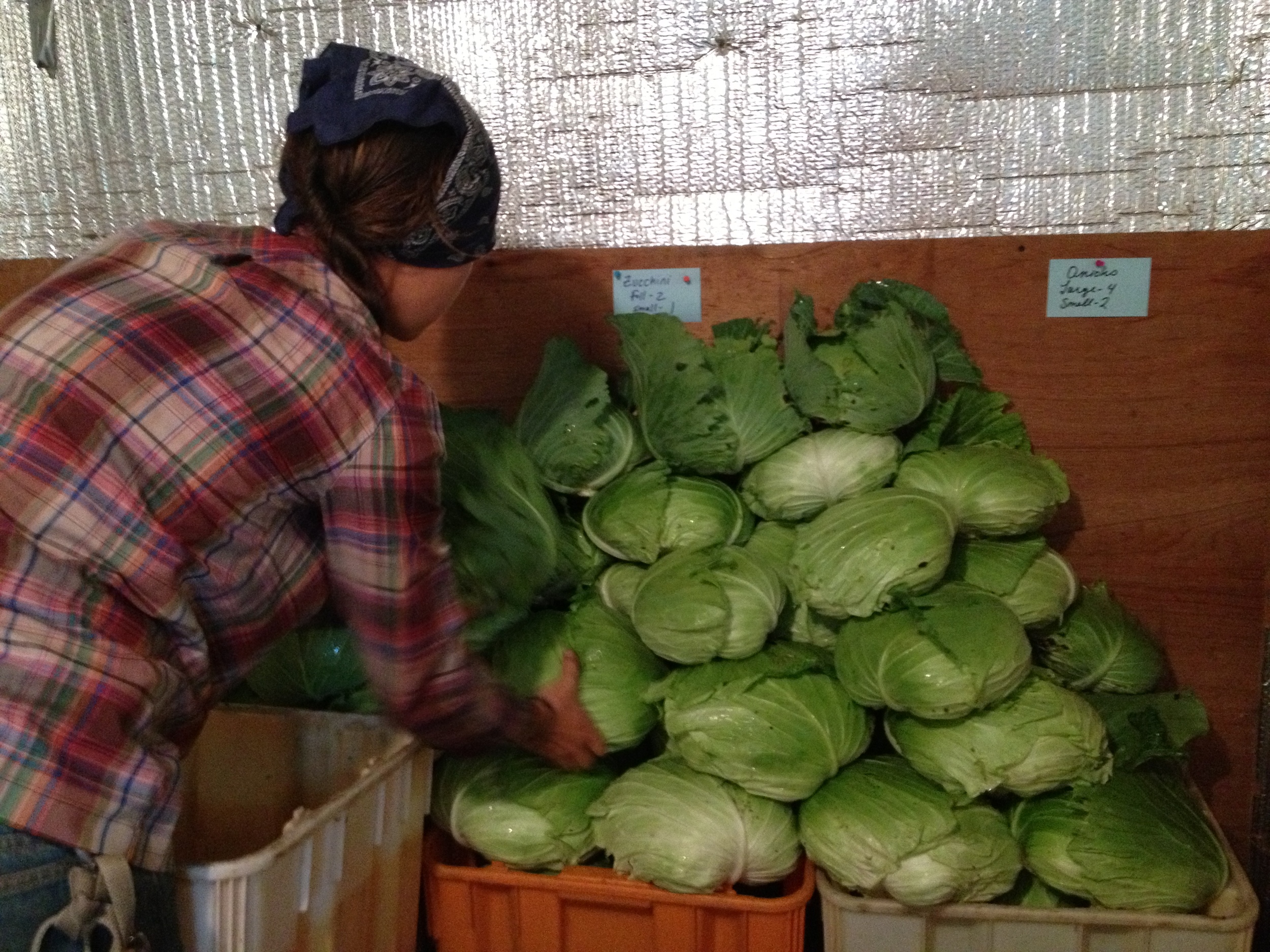I’m not sure if this is true wherever you are, but here in Wisconsin, it’s February. It’s a many-splendored month, full of snow and sleet and cold and flu and all things grey. It’s also the month of seed orders, day lengthening, and the pre-season farmer huddle. It takes a herculean feat of imagination to look out at the greyscale landscape at this moment and paint the rows green, but the seeds are in the mail and attention must be paid! Next season is still a nebulous haze of future colors and smells and sounds and tastes ready to be corralled into a mixed metaphorical bag of tables, calendars, charts, drawings, etc. Danielle and I have started to talk about what next year is going to look like at Boerson Farm, and these ongoing conversations have prompted me to reflect on the idea of the apprenticeship and the different ways one chooses how to learn a trade. We were discussing their decision to scale down their pork production over the next few years, and she made an off-hand comment about my being able to learn from their mistakes. Over the last year and going into the next season, I am constantly thankful that Mat and Danielle take the attitude that they have more to learn than they have to teach. That’s not to say I don’t have lots to learn from them - they’re both whip-smart, well-read, and wise beyond their years. They’ve got an extra ten years of life experience and seven years farming experience on me, but their attitude is always closer to the student than the teacher. So as I prepare for my last season as their girl Friday, I’ve been reflecting on what makes for a good learning experience, and how my time at the Boersons’ compares to other apprenticeships available to aspiring farmers.
When I was looking into learning opportunities the first (and second) time, I noticed that there seemed to be two possible directions to take when choosing a farmer-mentor: someone who has been farming for years and has everything figured out or someone who is building up their farm and is still figuring things out. There are certainly more people in the latter camp than the former, but there are for sure a few established farmers who attract lots of young acolytes hoping to learn at the feet of masters. More often than not, these masters are published, oft-cited men who have a model to deliver. Almost across the board, apprentices are paid little for their labor, entering into a mutually-beneficial arrangement to learn what they can before striking out on their own. Many of these farmers understandably regard educating the next generation of farmers part of their commitment to sustainability, and take on the burden of training and retraining a rotating cast of enthusiastic young people and sending them on their way after a season or two of hard work. Others, seemingly fewer but no less committed, seek to attract and retain hard workers with the promise of a living wage, benefits, and the satisfaction of working hard with lofty principles. These farmers see their sustainability in a more specific sense. focusing on building a farm community that can sustain itself, not just ecologically but financially. As a few widely-circulated articles have recently pointed out, many successful farms are barely profitable and rely heavily on volunteer or un-/under-paid labor. Of course, these two approaches are not diametrically opposed, and fairness is possible in both scenarios. The issues come up, I think, when the two parties aren’t on the same page. In many conversations with mentors and mentees alike, I’ve come across examples of people feeling exploited in both positions - farmers who invest time and money training what they regard as long-term staff only to have them leave after two seasons to start their own enterprise, or apprentices who work very hard for very little money and end up feeling taken advantage of by a less-than-enriching experience. Circling back to my initial point, it seems that many of these “master farmers” have well-established and well-oiled apprenticeship programs, where they communicate their expectations clearly and attract applicants who sign up with the intention of working hard while learning from someone who knows what they’re doing.
So why didn’t I choose to go the “master” route? I did, after all, choose to attend what is arguably the most famous college in the world, which I don’t regret in the least but which could be seen in retrospect as not necessarily working towards my current goals. It might follow that I would choose to take the same approach in my current (re)education, seeking out equally shiny names in my chosen field. Truthfully, I did initially look into some of these “big name” farms, going so far as to interview at one before encountering an example of the difference in goals I referred to above. In hindsight, there are a few reasons I ended up where I did. First, I wanted to be closer geographically to Future Farm to prepare for my impending transition to start-up mode. While the greater Midwest certainly has some well-established sustainable farms and a few luminaries, the apprenticeship culture isn’t as developed as it is on both coasts, where most of these “masters” farm. The other main reason I didn’t go the “master” route is not a flattering one: I am not suited, personality-wise, to learning from any one person. I am genetically predisposed to be a know-it-all, and I haven’t necessarily worked very hard to curb this less-than-ideal tendency. I’m afraid I bristle at the notion that anyone could tell me the “right” way to do something, to be honest, and the idea of going to learn from someone who has perfected a system might be more than my fragile ego could bear. I’m sure I didn’t acknowledge this reasoning the last two winters during my search for farmer-mentors, but in hindsight this might have been the primary (if subconscious) reason I ended up at the Boersons. Over the past year, I have been included (for better or worse) in planning, decision-making, troubleshooting, brainstorming. I have felt like an integral part of something that, at the end of the day, is not mine. I have worked hard for very little money, but I have gained in other tangible and intangible ways and felt perhaps over-appreciated while doing it. I am consciously trying to become a better receiver of knowledge, but in the meantime I am so happy to be where I am: learning with the best, peering forward together from February to the promises of the season to come.







